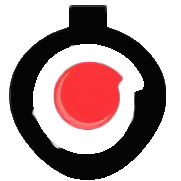The JUICE spacecraft may be visible from South-East Asia during an unprecedented manoeuvre
ESA
The Jupiter Icy Moons Explorer (JUICE) spacecraft is stopping by home in what the European Space Agency (ESA) is calling “a double world first”. It will fly past Earth and the moon on 19 and 20 August, marking the first of several complex manoeuvres along its looping path to Jupiter – and it may be possible to spot the spacecraft in the sky as it hurtles by.
JUICE launched on 14 April 2023, and since then it has been circling the sun roughly alongside Earth. But on 19 August, its journey will start to get interesting. It will pass within 700 kilometres of the surface of the moon, slowing it down slightly in what is called a gravity assist. Then, the next day, it will dip less than 7000 kilometres from Earth’s surface, bending its trajectory even more. That is when it may be possible for eagle-eyed skywatchers in South-East Asia to catch a glimpse of the spacecraft.
All of this is necessary because if JUICE were to fly in a straight line to Jupiter, it would need more than 60,000 kilograms of fuel to get there, and even more to slow down and enter orbit once it arrives. The mass of the entire spacecraft without fuel is 2420 kilograms, so that is not remotely feasible. Instead, the upcoming flyby of Earth and the moon will send the craft towards Venus, where it will start to speed up, and then it will make two more passes by Earth to gain just the right amount of speed to get to Jupiter in 2031.
The first manoeuvre may be the most complicated of the entire mission because JUICE must pass through precisely the right point in relation to both Earth and the moon to catch a ride to Venus. “It’s like passing through a very narrow corridor, very, very quickly: pushing the accelerator to the maximum when the margin at the side of the road is just millimetres,” said ESA’s Ignacio Tanco in a statement. A double-flyby of Earth and the moon has never been attempted before, nor has any double gravity assist.
If all goes well, JUICE won’t just be on its way to Venus and then Jupiter – it will also perform the first real tests of its scientific instruments. For some of them, this is the only chance they will get to iron out any kinks while observing a planetary surface before the spacecraft arrives in orbit around Jupiter and begins its mission there: searching for hints that the giant world’s moons could host life.
Topics:









